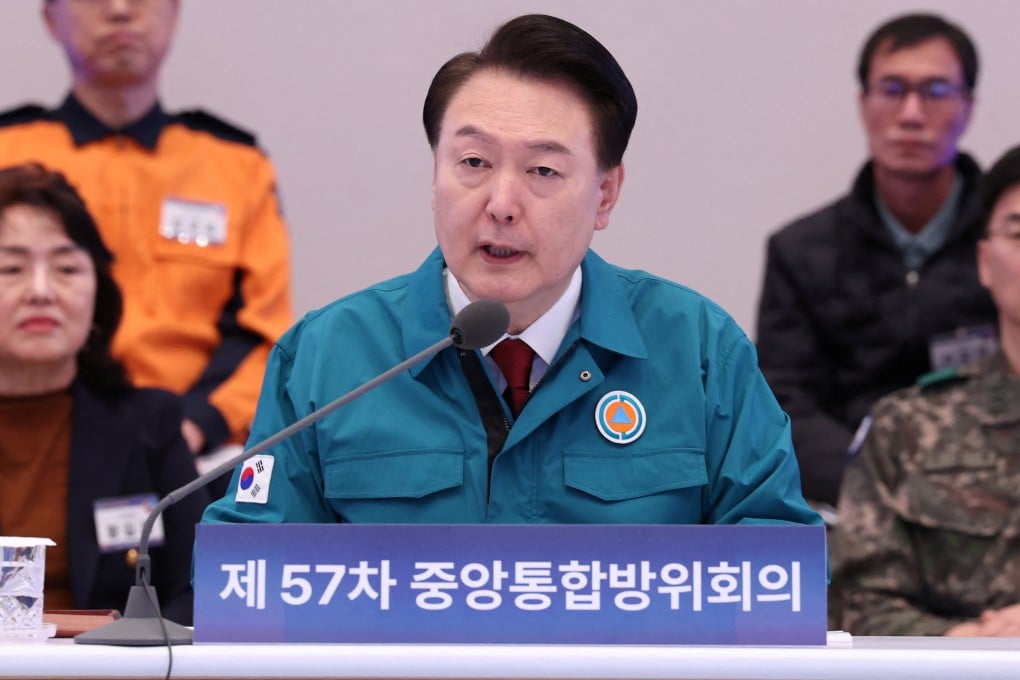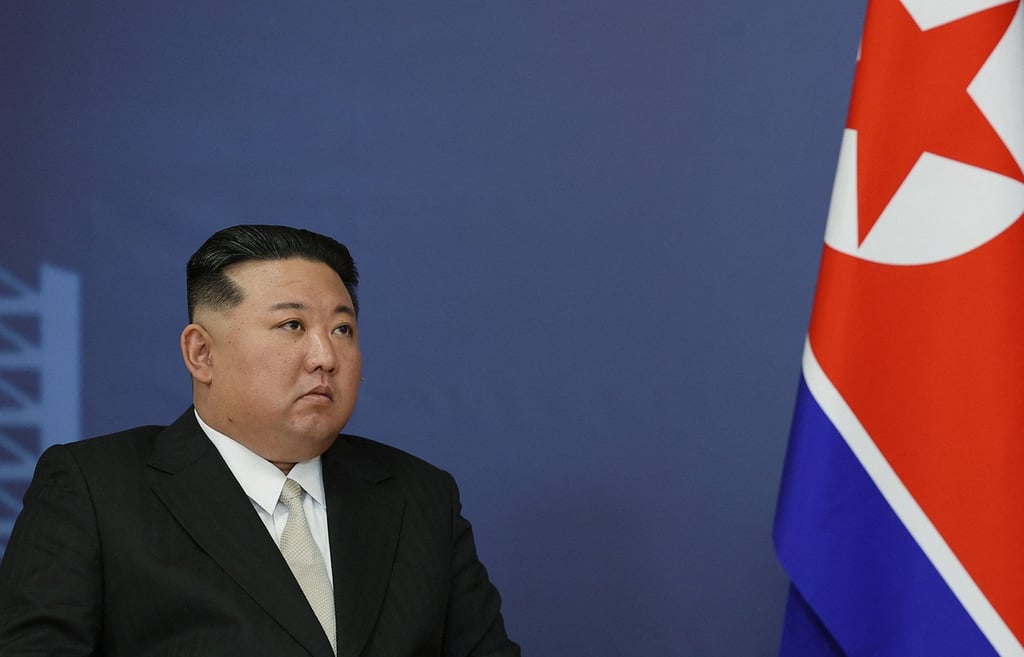Advertisement
Yoon warns Pyongyang may use ‘fake news, cyberattacks’ to influence South Korea election
- President Yoon Suk-yeol says the North has a history of carrying out ‘social disturbances, psychological warfare and provocations’ before important polls in South Korea
- His warnings were criticised by opposition chief Lee Jae-myung, who accused Yoon of ‘playing a war game’ for political gain
Reading Time:3 minutes
Why you can trust SCMP
2

South Korean President Yoon Suk-yeol on Wednesday called on the military to enhance defence readiness as he said the North was expected to stage a number of provocations to sway voter sentiment in the South’s coming general election on April 10.
The provocations could include, according to the president, not only military moves, but also cyberattacks and fake news, Yoon said.
“This year, South Korea will hold an important election, which is the political core of a free democracy,” Yoon said during an annual central integrated defence council meeting involving the military, police, government and the public.
Advertisement
“For the past 70 years, the North Korean regime has worked tirelessly to bring down our liberal democratic system, and in years with important political events, it has constantly carried out social disturbances, psychological warfare and provocations,” he said. “And this year, border area provocations, drone infiltration, fake news, cyberattacks and other provocations are expected to influence the elections.”

The North conducted a series of cruise missile tests last Wednesday, Sunday and Tuesday, seemingly posing a threat directed at South Korea.
Advertisement
Advertisement
Select Voice
Choose your listening speed
Get through articles 2x faster
1.25x
250 WPM
Slow
Average
Fast
1.25x